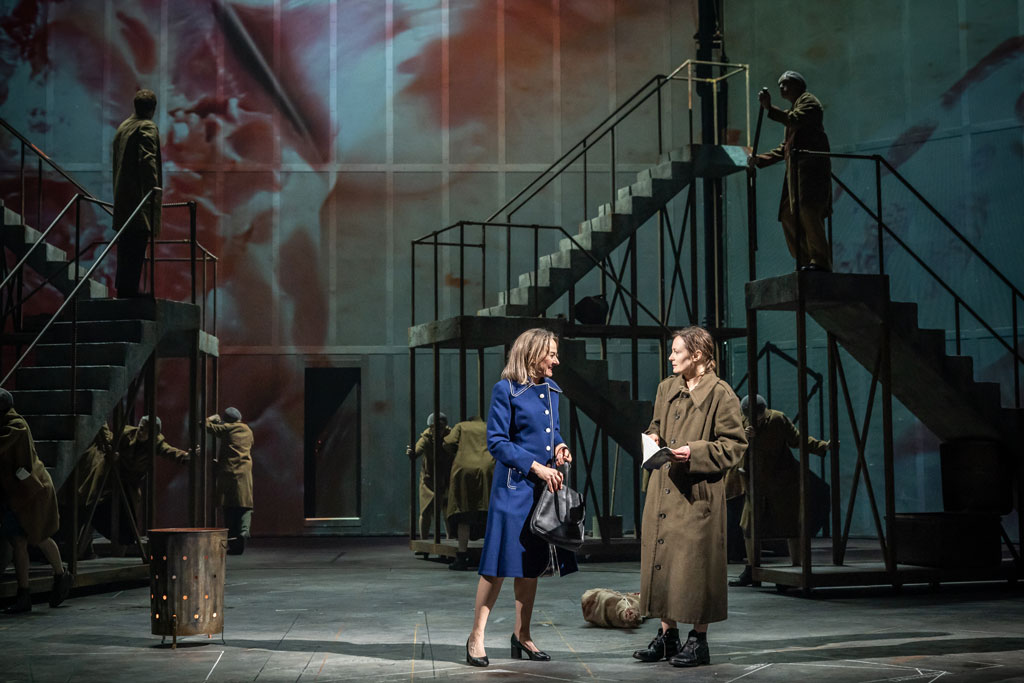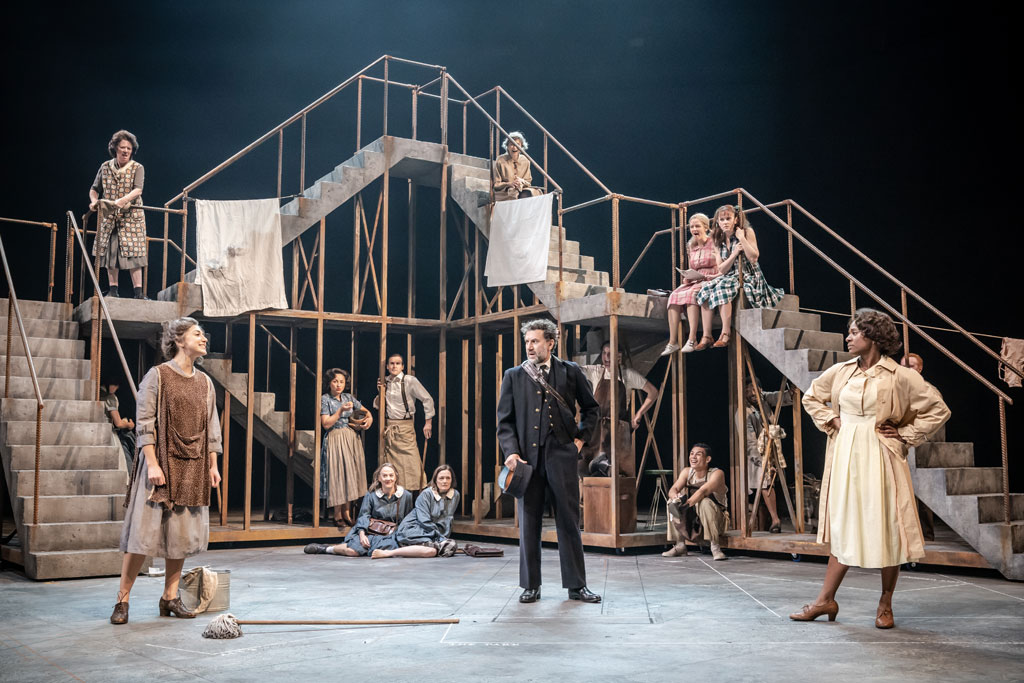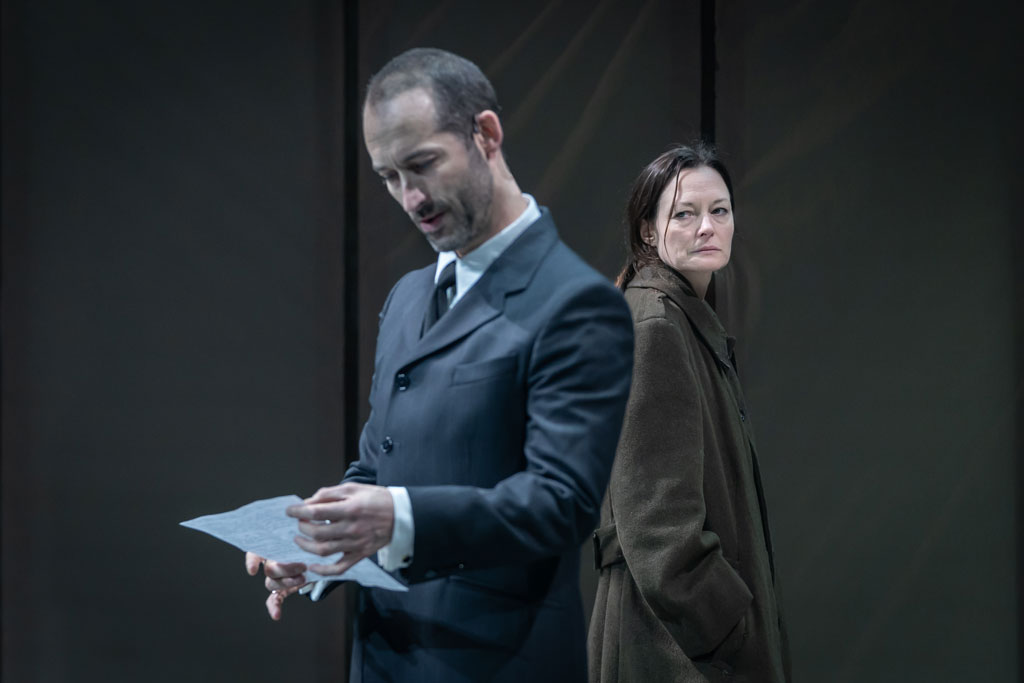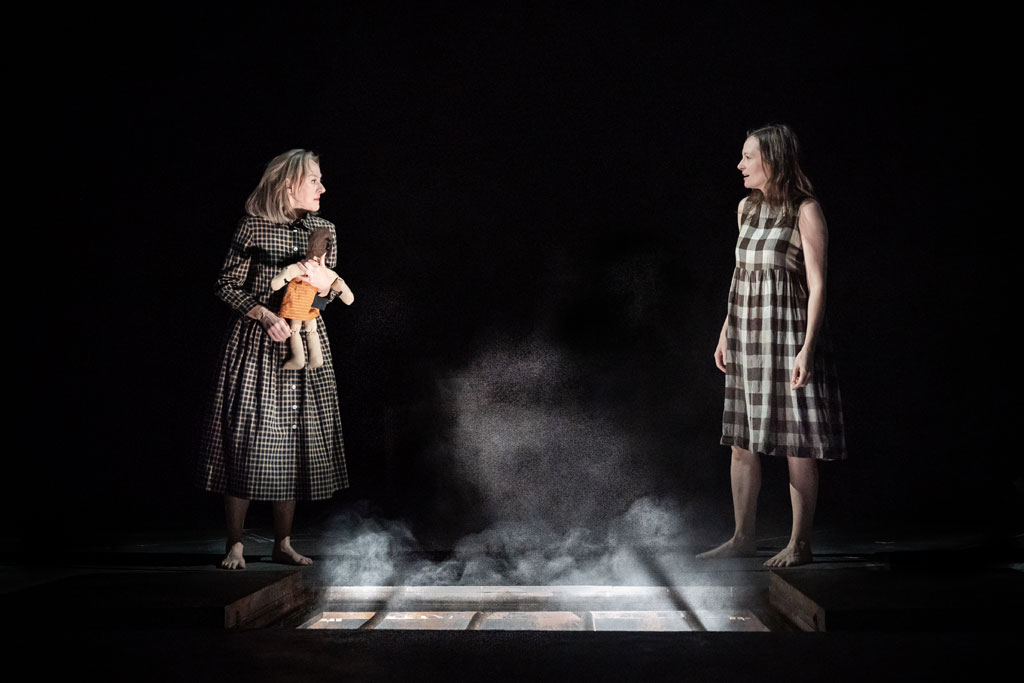Review: My Brilliant Friend at the National Theatre
This post may contain affiliate links. Learn more
Caroline Phillips reviews the theatre production of Elena Ferrante’s bestselling Neapolitan Novels
There are few more satisfying ways to spend five plus hours than in watching parts one and two of My Brilliant Friend, the stage version of Elena Ferrante’s publishing sensation, the Neapolitan Novels. April De Angelis has deftly condensed over 1500 pages into this two-part play (one book, one intermission, another book…twice) spanning nearly 50 years. Melly Still’s production combines a study of a close and complex female friendship with the backdrop of post-war Italy.
It’s a play about memory in which Lenu recalls (from childhood to adolescence and disillusioned adulthood) her unpredictable lifelong relationship with Lila, who has mysteriously disappeared. The two women are very different. Lenu, a porter’s daughter who swotted in childhood, becomes an academic and novelist. Meanwhile Lila, a shoemaker’s daughter, is an impulsive, clever tearaway who ‘plays for all or nothing’. But they’re glued together by their poor Neapolitan childhood.
The impoverished Neapolitan community is revealed through song, dance (the choreography is great), and vibrant and often poetic language delivered in British regional accents instead of the local dialect. (To have done it in Italian accents was thought by the cast to be culturally appropriating. But it’s hard, initially, getting one’s head around being transported by an accent to, say, working-class Liverpool when someone is talking about, the local madwoman, Melina, ‘eating soap like pecorino.’)
There is a suspension of disbelief: children played by adults in school smocks, adults playing babies. And so too with the beautiful design: whether it’s two men rushing around holding headlights to simulate a car, a smock falling through the air to symbolise Lila being thrown from a window as a child, another empty dress being held up and violated in a rape scene, and flowing sheets used to symbolise the sea.
Sometimes music is used adroitly — the vignettes are punctuated with pop songs including Sinatra, Bowie and Aretha; and Purcell’s Dido’s Lament reoccurs as we piece together fragments of memories — but at other times it feels intrusive.
The role of words and education — and hence social betterment — is central. “We’ll screw them with words,” declares Lila. And at another point, “You don’t know your story,” asserts Lenu, “until you’ve written it”.
Feminism and female agency are also at its core, as the duo fight to be taken seriously in education, work and married life in a context of traditional Italian beliefs and the devastation wrought by fascism. The men in this patriarchal society are all unappealing — from the thuggish, loan shark Solara brothers to Lenu’s patronising professor husband to the duplicitous lover who, unknowingly, the two women share — all of them subjugating their women in a horrible imbalance of power.
There is a cast of 24, sometimes all on together, say in the meat factory or wedding scenes. Niamh Cusack (Lenu) and Catherine McCormack (Lila) are on stage for most of the production — and triumphantly so. Their relationship is very enmeshed — it’s as if one is not complete without the other. Their rivalries, competition and need for one another are played out convincingly in front of us.
A stand-out scene is the wedding, which starts with singing and dancing with chairs and ends with eyes being gouged out. The way slow motion is used here — and in other places — to suggest thoughts (Annie Hall-style) is brilliant.
There’s an epic, panoramic sweep in this two-part play that encompasses everything from violence, sexual awakenings, the class struggle and Neapolitan working-class culture through to fascism; that runs from abuse, joy, scrambling to improve themselves to living on their wits and more. Many of the conclusions are bleak. “Love for a man doesn’t last,” opines Lila. And later, Lenu decides, “The only truth is chaos.”
On the downside, a quartet of this size (I’ve read only the first book) offers a psychological complexity, detail and texture that can’t be replicated in four acts of condensed, fast-moving theatre. One and a quarter hours per book is pretty zippy. Aside from Lenu and Lila, the supporting characters aren’t well-rounded and fleshed out.
The couple of theatregoers who sat beside me during the performance had read the books, seen the TV adaptation (in Italian) and were there to see the classic turned into five-ish hours of theatre. Even though they found the pace too accelerated, they didn’t seem disappointed. It’s so immersive that time flies, particularly in part one when they’re children. If you have the chance to see it, do.
My Brilliant Friend at the National Theatre until 22nd February
MORE CULTURE:




